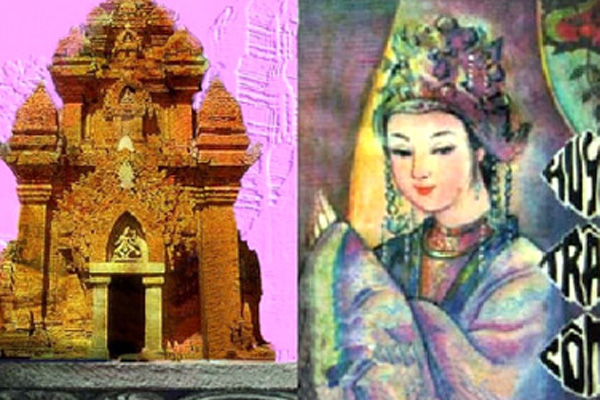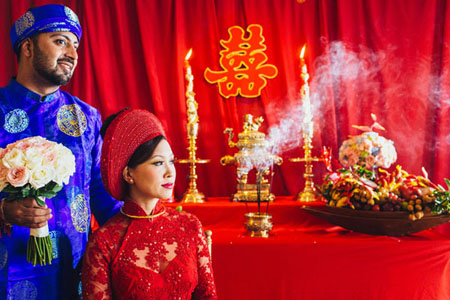Marriages between Vietnamese and foreigners have become common here since the 80s.
Before that they were rare, especially in the north and the central, where Confucian ethics had a stronger hold than in the south.
Further back in time, things were even stricter. Respectable families would not accept a foreign person into their circles however distinguished that person might be.
People felt sorry for Princess Huyen Tran (14th century) for her marriage to Cham King Simhavarman III, although the latter actually offered in exchange the two present provinces of Quang Tri and Thua Thien - Hue.

A woman who looks a foreigner for a husband would be viewed with disapprobation. She would be called a "Me Tay" (woman married to an European), "Me Tau” (woman married to a Chinese), "Me Nhat" (woman married to a Japanese), and so on.
This prejudice could be explained by the fact that such unions were mostly marriages of convenience.
There was also that natural reaction dictated by popular chauvinism, which regarded all those French, Chinese and Japanese husbands as belonging to the "races" of cruel conquerers and greedy merchants that had brought misfortune to the country.
The following folk song pokes fun of a widow who made votice offerings to her late husband on the occasion of Tet:
"The Year was at its end; it was the Last Day of the Twelfth Month,
The widow of a Celestial was offering him money and paper effigy.
Standing by the river running along the border,
She looked towards the country of her husband on the other side
And called out: ’This is for you, my Celestial.’
She held up, in one hand, a string of sapekes
And, in the other, an effigy of the deceased
And threw both into the water.
The string of sapekes sank to the bottom because it was heavy.
While the effigy floated on and on because it was light
Listen now, good people!
Isn’t it a rule the world over?
That money carries greater weight than man?"
Tan Da, who lived in the early part of this century, wrote this piece for a blind street-singer:
"I deplore the fate of your rosy cheeks.
In your greed for shiny silver
You’ve got yourself a black husband."
Vu Trong Phung, a satirical novelist, created an unforgettable character, Madame Pho Doan, the widow of a French customs officer in colonial times.
Now after the two Indochina Wars, ordinary people in Vietnam have come to know more about other countries. National independence has strengthened self-confidence and the growing presence of foreign tourists and business people have largely done away with ingrained prejudice against interracial marriage. What is left may be removed soon by the market economy.



